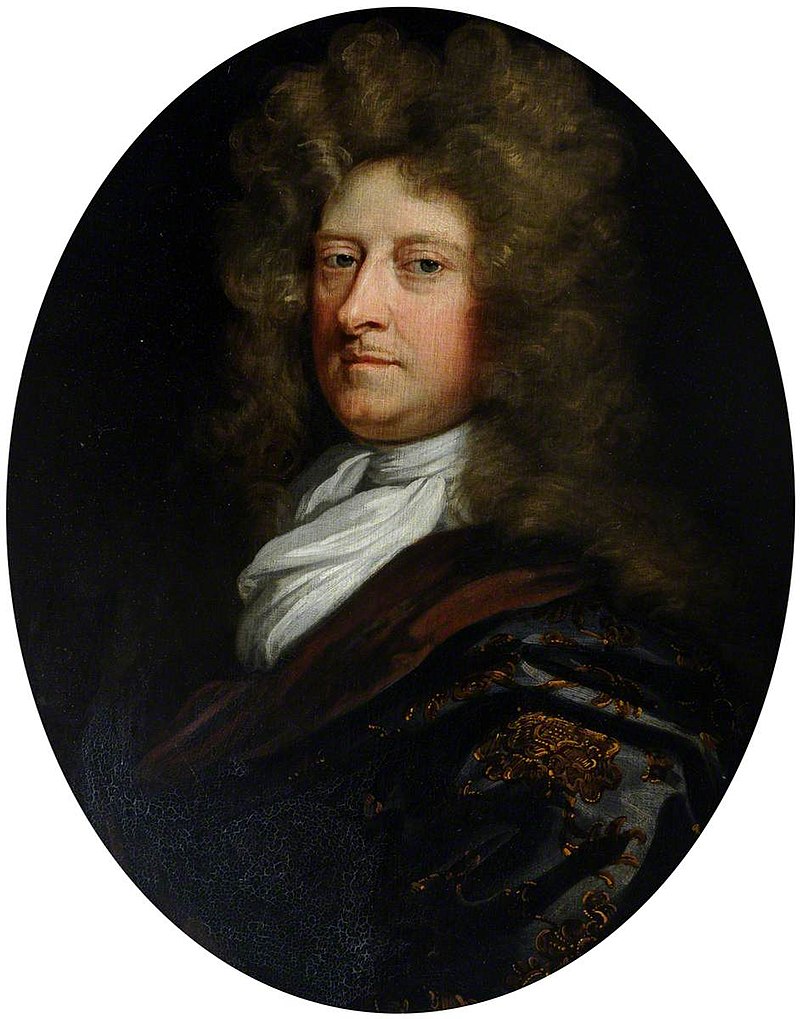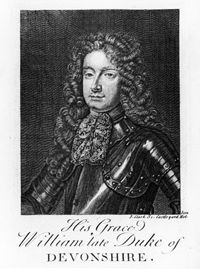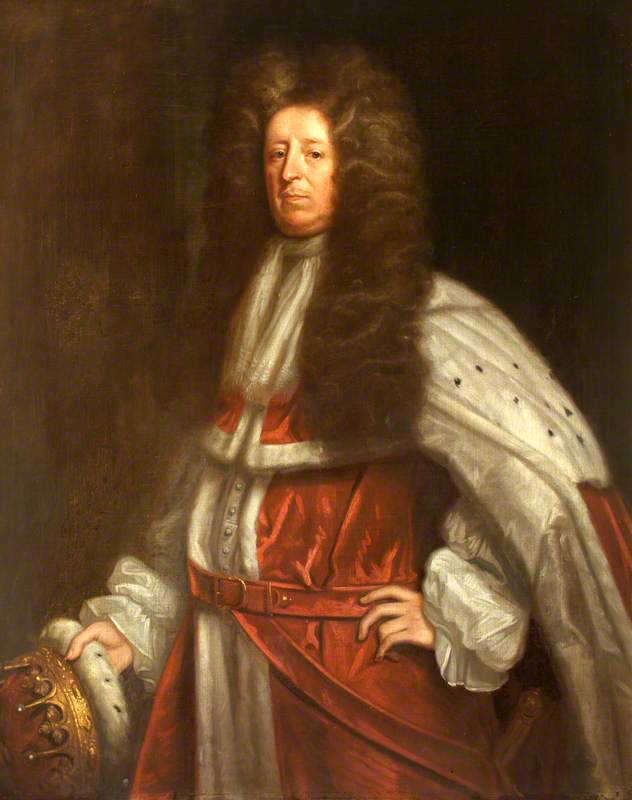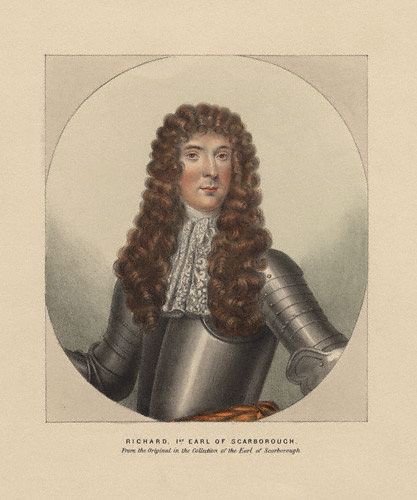<Back to Index>
- Politician William Cavendish, 1st Duke of Devonshire, 1640
- Statesman Richard Lumley, 1st Earl of Scarbrough, 1650
PAGE SPONSOR


William Cavendish, 1st Duke of Devonshire KG PC (25 January 1640 - 18 August 1707) was an English soldier, politician and Whig politician who sat in the House of Commons from 1661 to 1684 when he inherited the peerage as Earl of Devonshire. He was created Duke of Devonshire in 1694.
Cavendish was the son of William Cavendish, 3rd Earl of Devonshire and his wife Lady Elizabeth Cecil. In 1661, he was elected Member of Parliament for Derbyshire in the Cavalier Parliament. He was a Whig under Charles II of England and James II of England and was leader of the anti - court and anti - Catholic party in the House of Commons, where he served as Lord Cavendish. He was re-elected MP for Derbyshire in the two elections of 1679 and in 1681. In 1684 he succeeded to the peerage as Earl of Devonshire on the death of his father and then sat in the House of Lords. He was a strong supporter of the "Glorious Revolution" of 1688 which brought William III of Orange to the throne, signing as one of the Immortal Seven the invitation to William.
After the revolution, Cavendish was a leading Whig, serving as William's Lord Steward, and was created the Duke of Devonshire (1694) and also Marquess of Hartington in recognition for his services. He rebuilt Chatsworth House.
Cavendish was given an honorary MA by the University of Cambridge in 1705.
Cavendish married Lady Mary Butler (1646 - 1710), daughter of James Butler, 1st Duke of Ormonde and his wife, Lady Elizabeth Preston, on 26 October 1662. They had four children.


Richard Lumley, 1st Earl of Scarbrough (1650 - 17 December 1721) was an English soldier and statesman best known for his role in the Glorious Revolution.
Lumley was the son of John Lumley and Mary Compton, and the grandson of Richard Lumley, 1st Viscount Lumley and Frances Shelley. The Lumleys were an ancient family from the north of England. Richard became the 2nd Viscount Lumley (in the Irish peerage) on his grandfather's death in 1661 / 1662, his father having died in 1658. He was brought up as a Roman Catholic and was taken on the Grand Tour by Catholic priest, Richard Lassels, but had turned Protestant by the time of his introduction into the House of Lords on 19 May 1685.
Lumley attended the Duke of York on his way to Scotland in November 1679 and was a volunteer in the abortive expedition to Tangier in 1680. In the latter year, he was appointed Master of the Horse to Catherine of Braganza, whose Treasurer he later became in 1684. He was created Baron Lumley by Charles II on 31 May 1681. He played a prominent part in the suppression of the rebellion of the Duke of Monmouth, having been personally responsible (according to John Evelyn) for Monmouth's arrest, unarmed and bearded in a dry ditch covered with fern brakes. From 1685 to 1687, he was Colonel of the Queen Dowager's or 9th Regiment of Horse.
Lumley was one of the Immortal Seven, the English noblemen who invited William of Orange to invade England and depose his father - in - law, James II. He secured Newcastle for William in December 1688. After William became King, he appointed Lumley in rapid succession in 1689 / 90 as a Gentleman of the Bedchamber, a member of the Privy Council, Colonel of the 1st Troop of Horse Guards (until 1699), Viscount Lumley of Lumley Castle, Lord Lieutenant of Northumberland and Lord Lieutenant of Durham. Lumley was created Earl of Scarbrough on 15 April 1690.
Scarbrough took part in the Battle of the Boyne in 1690 and was afterwards in Flanders. He was appointed Major - General in May 1692 and Lieutenant - General on 4 October 1694, retiring from active service after the Treaty of Ryswick in 1697 (though he received a new commission as Lieutenant - General of all the forces on 9 March 1701/2). He was Chancellor of the Duchy of Lancaster from 1716 - 1717. After his elevation, he significantly extended his family seat at Lumley Castle. He died of apoplexy in Gerard Street, Soho, on 17 December 1721.
Lumley was married to Frances Jones, daughter of Sir Henry Jones of Aston. He and his wife had six children.